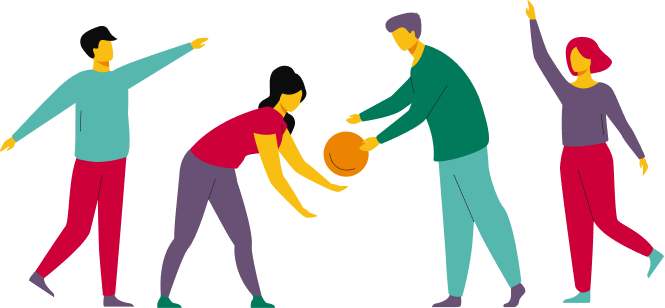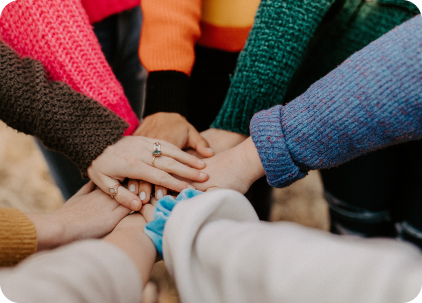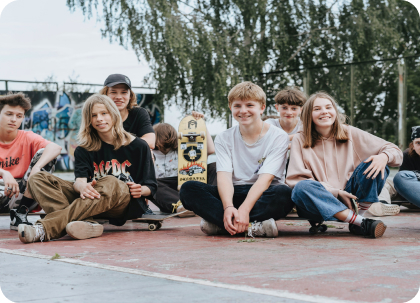
Planet Youth is an international research-based primary prevention model developed by the Icelandic Centre for Social Research and Analysis (ICSRA) at Reykjavik University.
The aim of the model is to reduce the use of psychoactive substances by young people and improve their health and quality of life.

Primary prevention refers to problem solving before problems occur. In other words, it places emphasis on guiding young people away from psychoactive substance use and towards other activities by improving their relationships, modifying their lifestyles and providing a safe environment.
Planet Youth is an Icelandic prevention framework that has been in place for more than 20 years and is currently replicated in 32 countries and 5 continents. The model was developed in 1998, when Icelandic youth ranked among the highest in terms of psychoactive substance abuse in the European teenage population (European School Survey on Alcohol and Other Drugs (ESPAD), 1998). Long-term, sustained prevention practices have helped Iceland achieve excellent results – Iceland is now listed as a country with one of the lowest rates of psychoactive substance use in Europe (ESPAD, 2015).
The Planet Youth model employs a population-wide approach and focuses on all young people, not just specific or vulnerable groups.
Engaging and empowering communities to make practical decisions through high-quality, locally available data and evaluation
Highlighting community action and engaging public schools as a natural centre of the neighbourhood/locality, with the core goal of improving the health, education and success of children and teenagers
Engaging researchers, policy-makers, practitioners and community members specialising in different fields and addressing complex, real-life problems
| Risk Factors | Protective Factors |
|---|---|
| Biological, psychological, family, community or cultural characteristics associated with a greater likelihood of negative outcomes (e.g. poor social relationships, unsupervised leisure, academic truancy, psychoactive substance use by peers, etc). | Factors associated with a smaller probability of negative outcomes or factors that mitigate the impact of the risk factor (e.g. good relationships with parents, participation in extracurricular activities, community ties, support from adults at school, supportive peers, etc.) |


The comprehensive deployment of the model includes many interdependent areas: monitoring, interventions in schools and communities, improvements to sports, health, and family leisure activities and infrastructure. In addition to preventing or reducing young people’s exposure to psychoactive substances, the aim is to further improve their engagement, create opportunities for meaningful activities and promote good health, relationships, environment and community ties.
One of the factors contributing to the success of the model is the establishment of a Coordination Group composed of various professionals working in health, education, youth policy, prevention and control of psychoactive substances, etc.
The main objectives of the Coordination Group include defining and approving the strategic direction of the Planet Youth model in Vilnius, supporting the communities/elderships in Vilnius that are involved in the deployment of the model, monitoring the progress, and ensuring that the process is consistent with the principles of the Planet Youth model. The Coordination Group also aims to give publicity to the activities and results of the model at the political level, as well as in government agencies and organisations.

 1
1
 2
2
 3
3
The survey of 10th/II form (gymnasium) pupils provides an insight into the factors that contribute to young people’s psychoactive substance use habits and the changes that should be initiated in this regard. This process focuses in particular on the role of parents, formal and non-formal education teachers, and members of the local community with a view to reducing the risk of use and reinforcing factors that motivate teenagers to adopt positive behaviours.
The survey is followed up by district and individual school reports, which are essential in engaging communities in the preventive activities. These reports are used to identify risk factors and protective factors, which contribute to the planning and implementation of preventive activities by all stakeholders.
Based on the findings of the survey, preventive activities are designed and delivered in selected urban communities to guide young people away from alcohol and drug use by turning their focus on relationships, leisure, lifestyle, environment and well-being.
Research data sometimes reinforce what we already know or suspect about young people's lifestyles and settings. They nevertheless provide crucial information about the mental and physical well-being of our youth and enable evidence-based decision-making.

 - Substance Use Prevention for Adolescents: the Icelandic Model
- Substance Use Prevention for Adolescents: the Icelandic Model
 - Prevention is Possible: A Brief History of the Origin and Disseminations of the Icelandic Prevention Model
- Prevention is Possible: A Brief History of the Origin and Disseminations of the Icelandic Prevention Model
 - Data Collection Procedures for School-Based Surveys Among Adolescents: The Planet Youth in Europe Study
- Data Collection Procedures for School-Based Surveys Among Adolescents: The Planet Youth in Europe Study
 - Implementing the Icelandic Model for Preventing Adolescent Substance Use
- Implementing the Icelandic Model for Preventing Adolescent Substance Use
 - Development and Guiding Principles of the Icelandic Model for Preventing Adolescent Substance Use.
- Development and Guiding Principles of the Icelandic Model for Preventing Adolescent Substance Use.
